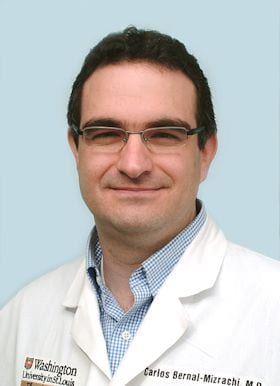
Carlos Bernal-Mizrachi, MD
My laboratory focuses on the mechanisms by which innate immune cells and the inflammatory milieu contributes to the development of hypertension, insulin resistance and cardiovascular disease.

Sharon Cresci, MD
The focus of my research is the association of genetic variation with clinical outcomes in patients with cardiovascular disease and in the variable response to pharmacologic treatment. I have specific interest in (1) racial disparities and (2) defining the functional mechanism of these genetic associations; the ultimate goal of my research is to promote and advance precision medicine approaches.

Jianmin Cui
The Cui lab studies membrane permeation to ions, drugs and genes, including molecular mechanisms of ion channel function, molecular/cellular mechanism of disease-associated ion channel mutations, and small molecules that modulate ion channel function, as well as ultrasound-mediated ion channel activation and drug/gene delivery.
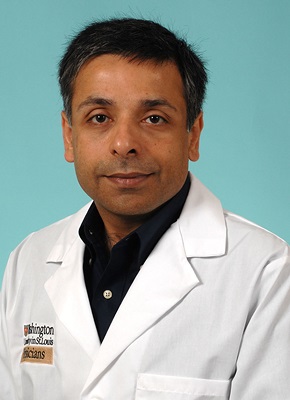
Abhinav Diwan, MD, FACC, FAHA
My lab’s primary interest is to define the role of lysosomes in cellular homeostasis and response to stress. We have uncovered evidence for acquired lysosome dysfunction in various cell types in cardiomyopathy, Alzheimer’s disease and diabetes, and are investigating the underlying mechanisms and therapeutic strategies in murine and C. elegans model systems.
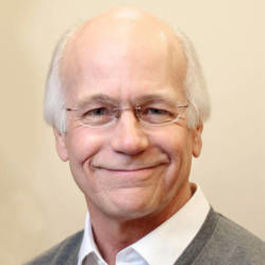
Gerald Dorn, MD
The Dorn lab studies mitochondrial dynamic dysfunction in heart and neurological disease. Our ongoing work has identified previously unrecognized forms of genetic heart disease caused by mutations of MFN2 for which we have developed novel peptide- and small molecule-based therapeutics.

Sarah England, PhD
The England lab investigates the roles of ion channels in regulate both vascular and uterine smooth muscle excitability. More specifically, we are interested in how modulating ion channel expression and activity affect reproductive outcomes.
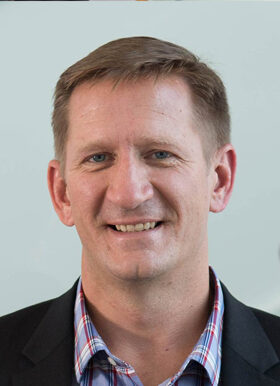
Brian Finck, PhD
The Finck lab is interested in studying intermediary metabolism in the heart and other organs. We use a variety of mouse models, cell culture systems, and molecular biological approaches to achieving our goals.

Michael Greenberg, PhD
The Greenberg Lab is studying mutations in contractile proteins that cause familial cardiomyopathies, the leading cause of sudden cardiac death in people under 30 years old. The lab uses an array of biochemical, biophysical, cell biological, and engineering techniques to decipher how these mutations affect the mechanobiology of the heart from the level of single molecules to the level of engineered tissues.
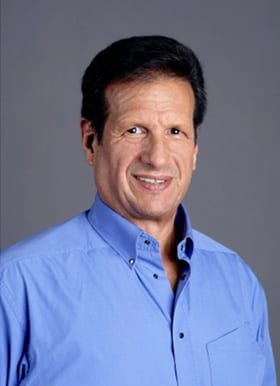
Richard Gross, MD, PhD
Our research is focused on the molecular mechanisms through which lipid 2nd messengers are generated (e.g., phospholipases, lipoxygenases), their biologic effects in precipitating human arrhythmias and heart failure and the development of new technologies (e.g., lipidomics, high resolution mass spectrometry) to identify the disease mechanisms responsible for human heart dysfunction.
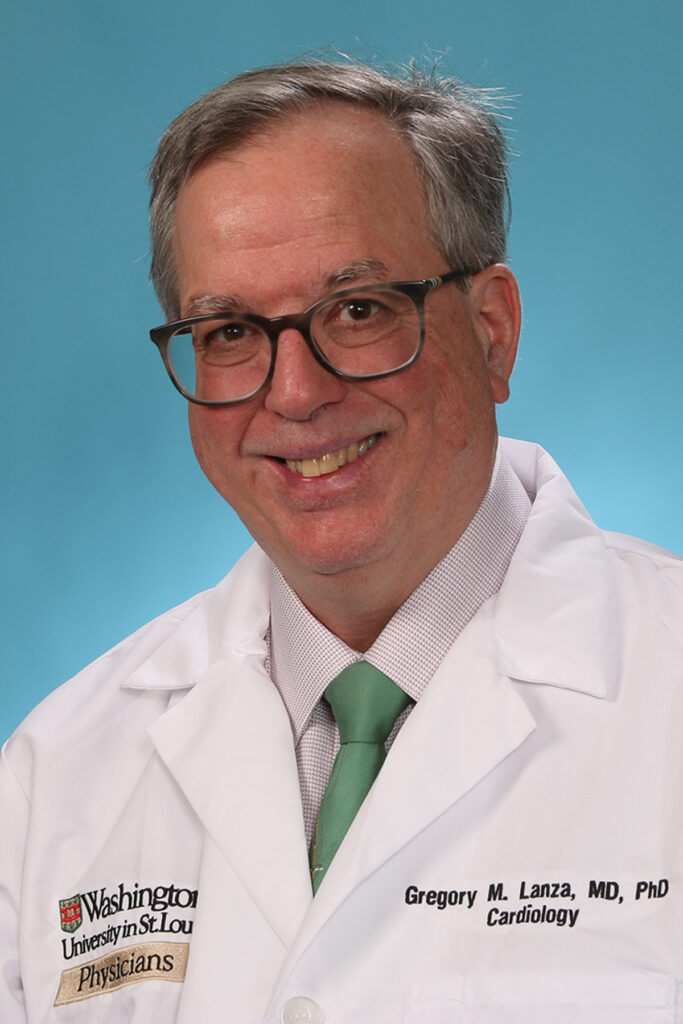
Gregory Lanza, MD, PhD
CTRAIN is a multidisciplinary research laboratory focused on technology innovation and translation for unmet needs in Internal Medicine, particularly cardiovascular and oncologic disease. Preclinical and clinical research in biomedical imaging, contrast probe development, nanomedicine, and drug delivery are the main programmatic pillars.
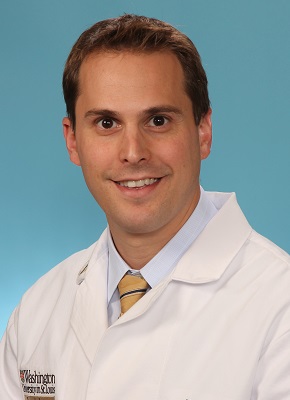
Kory Lavine, MD, PhD
The primary goal of our laboratory is to identify new approaches to treat patients with heart failure. Specific projects in the laboratory are focused on unraveling the mechanisms that initiate disease pathogenesis using a precision medicine approach and defining the role of the immune system in cardiac tissue homeostasis, heart failure progression, and myocardial tissue repair.

Douglas Mann, MD
We are interested in the molecular and cellular basis of heart failure, with a particular emphasis on the maladaptive role of inflammatory mediators and innate immunity in disease progression in the failing heart, as well as recovery of LV function following resolution of tissue injury.
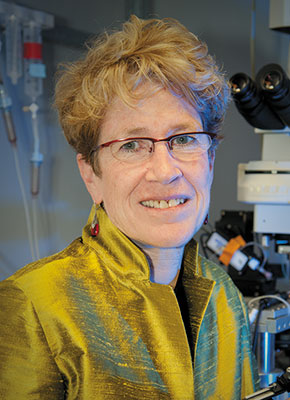
Jeanne Nerbonne, PhD
Research in the Nerbonne laboratory explores the molecular, cellular and systemic mechanisms involved in the physiological regulation and pathophysiological remodeling of cardiac and neuronal membrane excitability. Ongoing studies are focused on defining the roles of intracellular and transmembrane accessory subunits in the dynamic regulation of voltage-gated Na+ and K+ channels and on defining the molecular mechanisms underlying channel remodeling in the hypertrophied and failing heart.
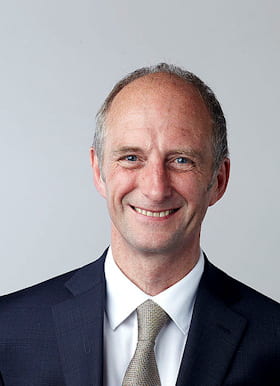
Colin Nichols, PhD
We study the molecular and cellular physiology of cardiovascular ion channels, and their disease relevance.

David Ornitz, MD, PhD
The Ornitz Laboratory studies the in vivo functions of Fibroblast Growth Factor (FGF) signaling in the heart, lung, bone, and cochlea. They use in vivo mouse models to study mechanisms of organogenesis and congenital and acquired birth defects, and they apply this knowledge of development to understand mechanisms regulating tissue homeostasis and response to injury. Discovery of novel homeostatic and reparative signaling mechanisms may lead to the development of novel therapies.
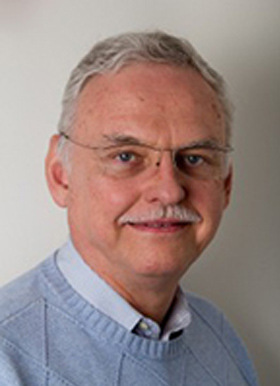
Michael Province
My research focuses on the derivation and application of new computational statistical genetics models to dissect the genetic nature of complex traits, through various paradigms: association, gene expression, linkage. We are currently focusing our efforts on heart disease and healthy aging genetics by serving as the Data Coordinating Center for several large, NIH sponsored multicenter family and genetics studies of complex traits, the NHLBI Family Heart Study (heart disease genetics), the Genetics Of Lipid Lower Drugs and Diet Network (GOLDN) study (lipid pharmacogenetics), and the Long Life Family Study (longevity genetics).

Gwendalyn Randolph, PhD
Our laboratory considers the impact of how transit of cells and molecules out of tissues influences the inflammatory microenvironment. The lymphatic vasculature is the primary regulator of flux out of tissues and thus we focus on the functionality of the lymphatic vasculature as it relates to the transport of cargo, particularly myeloid antigen-presenting cells in immunity and molecular entities like HDL. In this context, we focus on two chronic inflammatory disease settings, experimental atherosclerosis and inflammatory bowel disease.
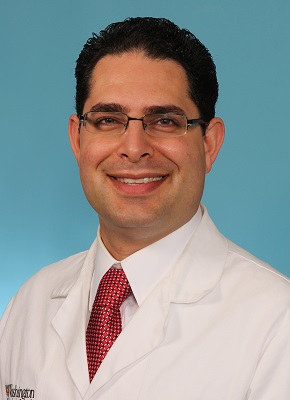
Babak Razani, MD, PhD
The Razani laboratory is interested in the mechanisms of atherosclerosis and related metabolic diseases such as obesity, diabetes, and fatty liver disease. We have a particular focus on the roles of macrophages and the autophagy-lysosome system. The ultimate goals of our research is to discover new mechanisms with therapeutic potential.
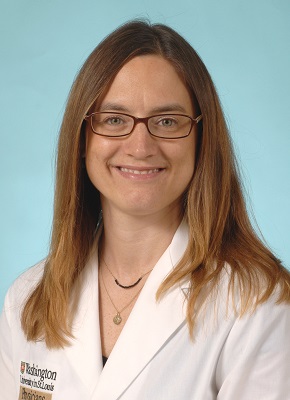
Stacey L. Rentschler, MD, PhD
The main focus of the Rentschler lab is to understand the transcriptional and epigenetic regulation of cardiac electrophysiology using murine and human organotypic slice culture systems. We are performing genome-wide gene expression and epigenetic studies coupled with optical mapping and microelectrode recordings to decipher the complex regulatory mechanisms that govern electrophysiology in health and disease states with the ultimate goal of developing and testing new therapeutics.

Yoram Rudy, PhD, FAHA, FHRS
Mathematical modeling of cardiac ion-channels structure and electrophysiological function, and simulation of cardiac cells electrophysiology and calcium cycling in the context of cardiac arrhythmias. Noninvasive mapping of cardiac electrophysiology and arrhythmias in patients for the study of mechanisms, using Electrocardiographic Imaging (ECGI) developed in my laboratory.
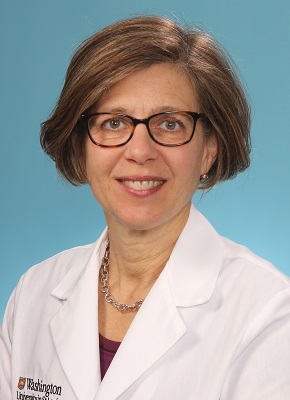
Jean E. Schaffer, MD
The Schaffer lab uses genetic, biochemical, and cell biological approaches to study mechanisms through which metabolic stress leads to cell dysfunction and cell death, and the contributions of this process to heart disease. A major area of focus has been the lipotoxicity that results from high circulating free fatty acids and triglycerides, metabolic abnormalities that are common in type 2 diabetes.
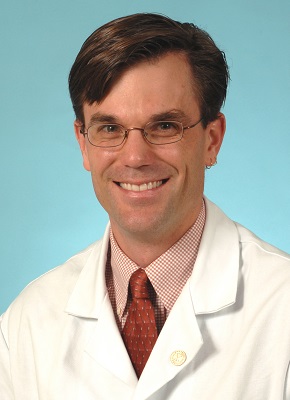
Joel D. Schilling, MD, PhD
My lab is focused on understanding the effects of obesity and diabetes on macrophage function. Our goal is to dissect the biology of distinct macrophage populations in vivo to design novel approaches to treat complications of metabolic disease.

John Silva
The Silva lab uses engineering approaches to improve cardiac arrhythmia therapies. Current projects include precision methods to predict patient response to antiarrhythmics and the use of augmented reality to improve physician accuracy during ablation procedures.

John Spertus
We study the impact of patient characteristics (the genome to depression and SES) on treatment and cardiovascular outcomes.
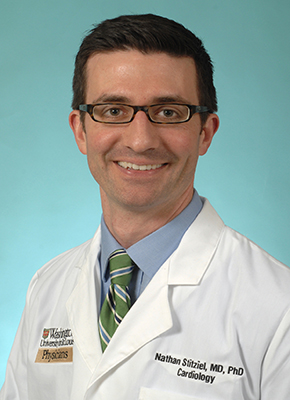
Nathan O. Stitziel, MD, PhD
Our lab’s research focuses on discovering, understanding, and clinically leveraging the inherited basis for cardiovascular disease.